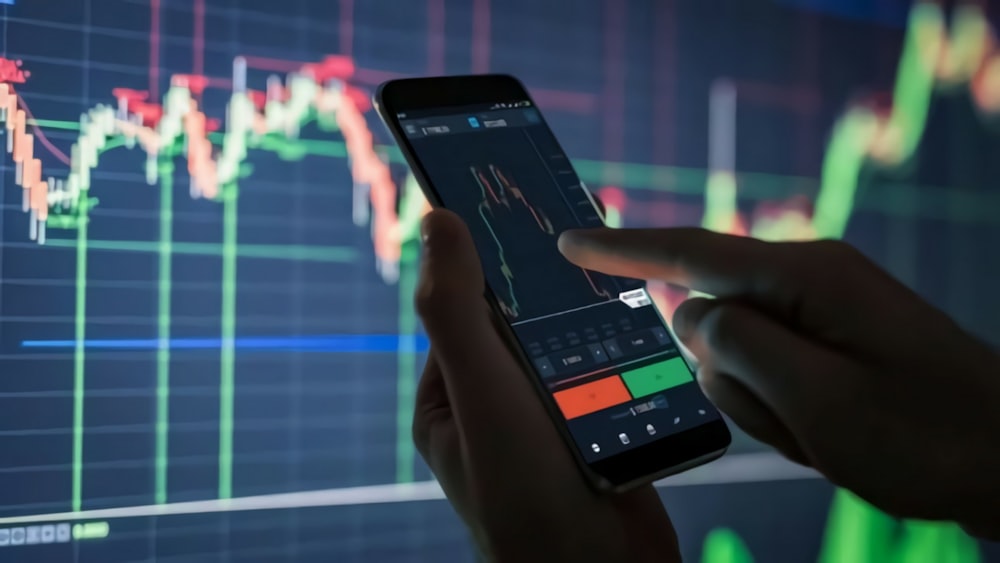Dow And Wall Street Suffer - What Is Happening?
Photo by Wance Paleri on Unsplash
Experts have warned that the "textbook" bear market bounce has run out of steam, and the stock market continued to fall on Tuesday after a brief summer rally on Wall Street fizzled out last week. Investors are once again anxious about aggressive interest rate rises from the Federal Reserve.
As investors prepared for a hawkish message from the Federal Reserve, the Dow Jones Industrial Average dropped on Tuesday, after its worst day since June.
121 points, or 0.37%, were lost on the Dow. In contrast to Nasdaq's 0.17 points gain, the S&P 500 fell by 0.03%. Poor performance was seen across the board in the S&P 500, but especially in healthcare, property, and utilities. On the other hand, energy stocks surged by 4 percentage points, outperforming the market as a whole due to increased oil prices.
Although shares in Palo Alto Networks rose by 9 percent after the firm reported solid quarterly results, those in Zoom Video fell by 13 percent after the video conferencing business cut its full-year projection. The current losing run for US equities is the longest since at least the Great Depression.
Indexes Go Down
According to RT, the Standard & Poor's 500 indexes dropped as much as 2.30 percent on Friday, putting it 21% below its record high from January and thus ending the bull market that had been underway since March of this year.
Since it is not limited to the 30 blue-chip stocks that make up the Dow Jones Industrial Average, the S&P 500 is often regarded as the most reliable indicator of the overall performance of the US stock market.
Art Hogan, the chief market strategist at National Securities, told ABC News, "It's vital to remember that the market is not the economy." "The market can provide us insight into the state of the economy six to twelve months from now. In light of this, I believe the market is now signaling that conditions in the economy might deteriorate further."
After a negative day in which the 10-year Treasury yield surpassed 3% and a summer rally fizzled out on rising rate rise fears, investors are feeling pessimistic.
Monday saw a decline in stock markets across the board, with the Dow falling more than 600 points, the S&P 500 falling more than 2%, and the Nasdaq Composite falling more than 4%. The Dow and S&P 500 both saw their worst one-day losses since June 16. This was the worst session for the Nasdaq since June 28.
Based on our research, we believe this bear has one more act," said Lisa Shalett of Morgan Stanley Wealth Management. The chairman of the global investment committee warned that the market was underestimating inflation, recession risks, and the need to reduce profit expectations.
The Dow Jones Industrial Average dropped 1.9%, or 600 points, while the S&P 500 fell 2.1% and the tech-heavy Nasdaq Composite dropped 2.5%; all three indexes were on course for their biggest single-day fall since late June.
Additional Things To Know
The euro dropped below parity with the U.S. dollar for the second time this year, and U.S. equities began down after significant declines in European markets led by anticipation for additional rate rises from the European Central Bank.
The Nasdaq Composite has fallen by 32% from its all-time high and is now 30% lower than it was at the beginning of the year, putting it in the region of bear markets. As low as it got, the Nasdaq dropped 352 points (3.1%) today.
"Economist Peter Schiff said that the S&P had entered a bear market when it fell by 20%, adding, "But the bear market didn't start today. The S&P reached its peak point on January 4. Since then, the market has been falling steadily. The problem is that investors are refusing to accept the obvious. This bear has the potential to be quite dangerous."
This week, Lloyd Blankfein, a former CEO of Goldman Sachs, expressed concern that the US economy was "very, very likely" to enter a recession. According to RT, inflation is at a 40-year high and the central bank is raising interest rates to try to bring prices back down to earth.
Dan Niles, a hedge fund manager, said on CNBC's "Tech Check" that he had prepared his portfolio for a possible economic downturn in the United States.
Niles predicted that the Federal Reserve would keep the economy under pressure with rate rises, and those forward earnings projections would continue to fall in the coming months.
The Federal Reserve is likely to warn us in Jackson Hole on Friday that "this is going to be a long, hard road. Niles said, "They still need to hike rates a lot more."
Experts' warnings of an impending energy crisis this winter have renewed concerns about a recession in the Euro Zone. The situation is exacerbated by Russia's tightening grip on the supply of natural gas to EU member nations.
Conversely, U.S. stocks dropped as investors braced for Federal Reserve head Jerome Powell's expected hawkish remarks at Jackson Hole Economic Symposium.
More By This Author:
Euro Drops Once Again: What Should Investors Consider?
The Stock Performance Of Listed FX Brokers In 2022
Reasons To Be Bullish On Starbucks Stocks




